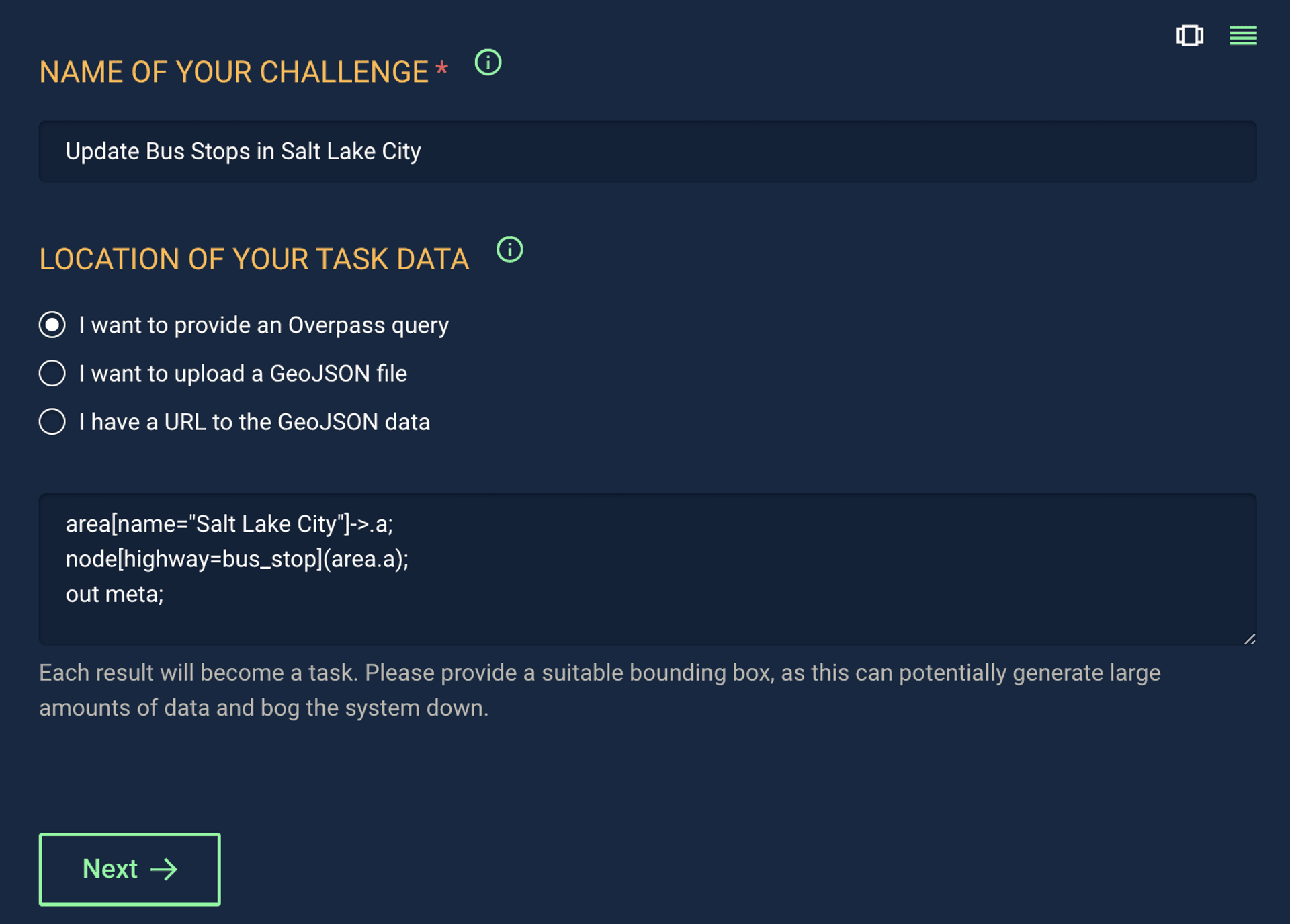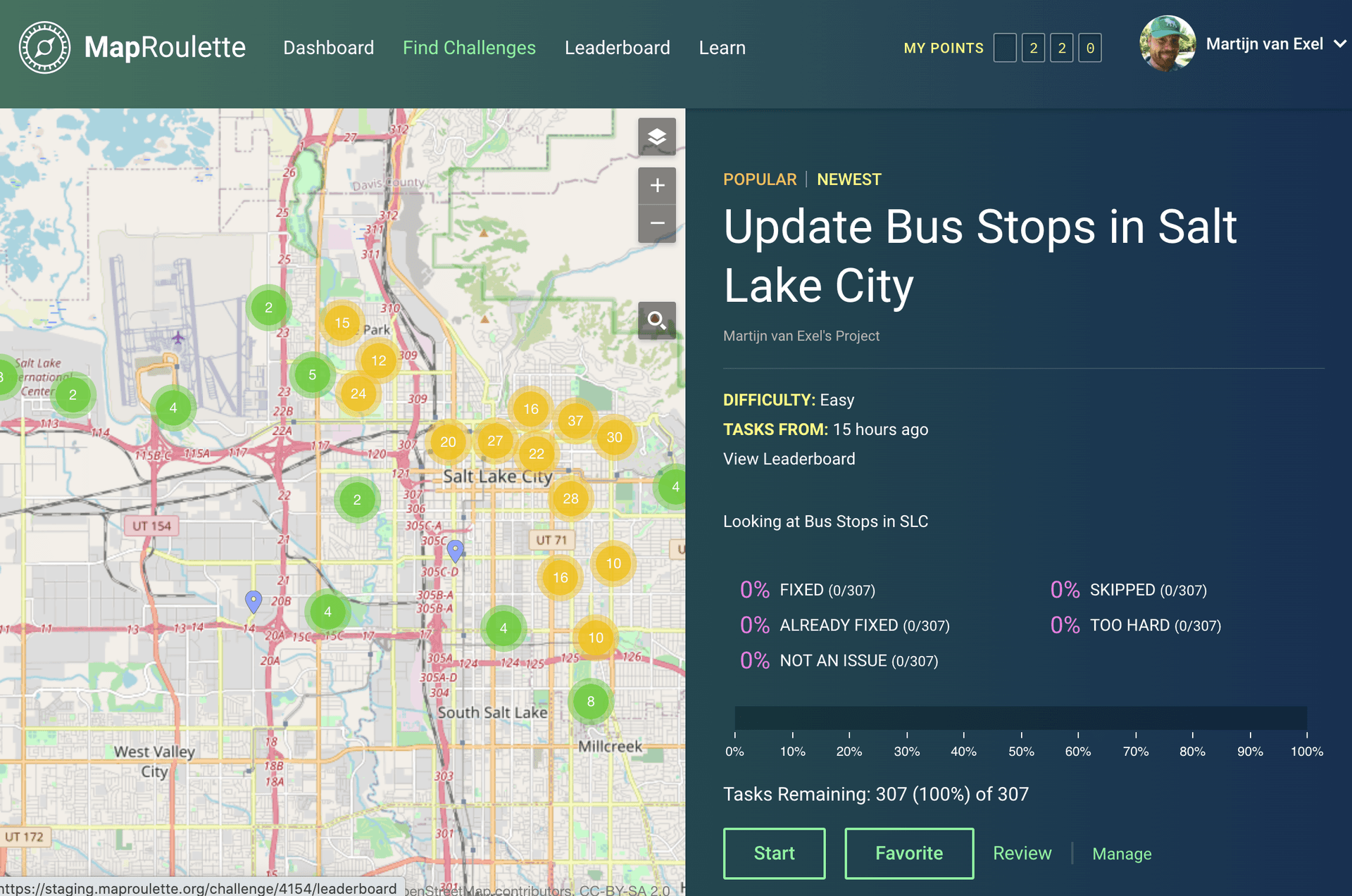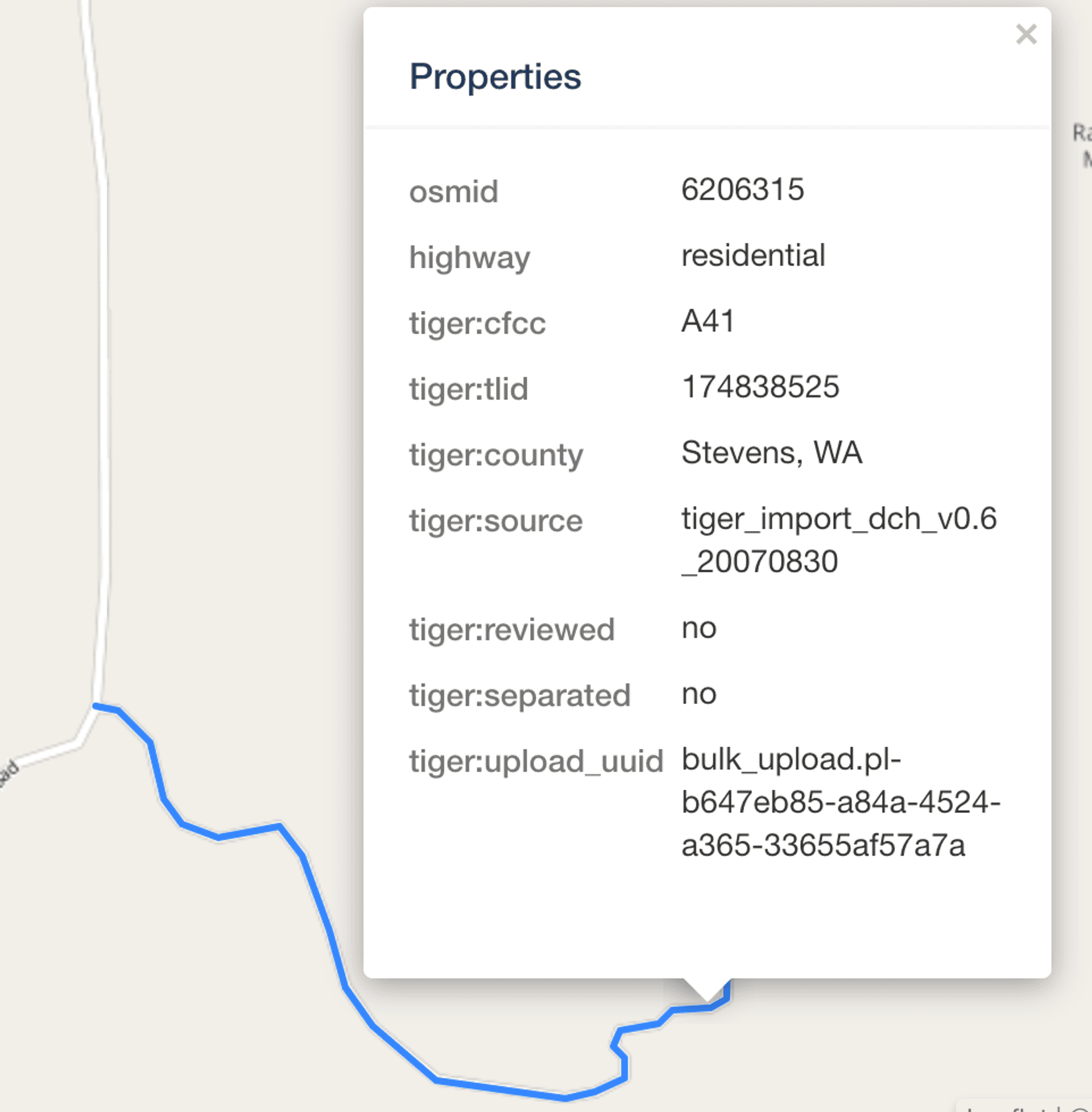Using Overpass to create Challenges
Overpass is a powerful query language for OSM. You can ask it things like “Show me all water fountains in Rome” or “Show me banks that are more than 1km away from a police station”.
You can use Overpass queries directly in MapRoulette to generate tasks when you create a new Challenge. This page is here to help you do this, and avoid common mistakes.
A simple example
Imagine that you want to create a Challenge to have mappers look at bus stop nodes in a certain area. This Overpass query will give you all highway=bus_stop nodes in Salt Lake City:
area[name="Salt Lake City"]->.a;
node[highway=bus_stop](area.a);
out meta;
Explaining the full syntax of Overpass QL (the language this query is written in) is outside the scope of this article. Please look at the language reference, examples and other Overpass related pages on the OSM wiki. OSM user Binette also has some MapRoulette specific query examples on their user page.
You can plug this query right into MapRoulette when you create a Challenge:

After completing the Challenge wizard, your Tasks will reflect the result of the Overpass Query:

Common Pitfalls
out center returns both relations and ways as nodes; use out geom instead
out center returns the correct coordinates, but instead of relations and ways, nodes are returned. This causes issues with editors because instead of searching for a way with id = 9817324213, we search for a node with id = 9817324213. This also causes problems with the MapRoulette maps as a single point will be displayed instead of a linestring.
``
This indicates the currently visible map extent. Overpass Turbo replaces this with the actual longitude / latitude bounds before sending the query to Overpass. If you want to use a query that contains bbox, you need to select Export > Query > Copy as standalone query before pasting into MapRoulette.
Beware of Recursions
Overpass lets you use recursion (>) to select all nodes belonging to a way, or all nodes and ways belonging to a relation. If you use recursion in a query to create Tasks in MapRoulette, you will often get more results than you expected. This is because MapRoulette will interpret each separate node as a Task, as well as the Way itself. To avoid this, use out geom. So instead of…
way["highway"="path"](40.76,-111.90,40.81,-111.85);
out body;
>;
out skel qt;
… do this:
way["highway"="path"](40.76,-111.90,40.81,-111.85);
out geom;
Timeouts
Complex queries or queries that span a large area can take a long time to complete. MapRoulette uses a default query timeout of 180 seconds (3 minutes). This should be enough for most scenarios. If you really need MapRoulette to tell Overpass to wait longer, you can use Overpass’s native [timeout] setting to override this.
A word on out meta
Strictly speaking, you don’t need all OSM metadata to build the tasks. You can just use the out statement with no parameters which, according to the documentation, gives you “all information necessary to use the data”. By using out meta you get “everything output by body for each OSM element, as well as the version, changeset id, timestamp, and the user data of the user that last touched”.
Note: In some situations in the building process, that needs to be further explorted, when building with a way(int) or relation(int), there are some issues. There was a user that tried the ‘out’ method, and all the ways and relations were dropped from the challenge. Right now i dont think that maproulette supports relations, but building ways can be done by using out geom.

An OSM way imported as a Task using Overpass with full metadata